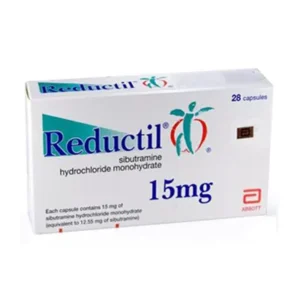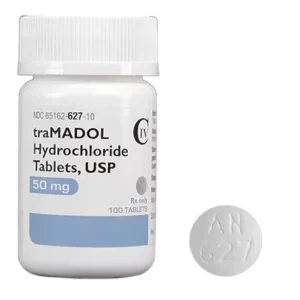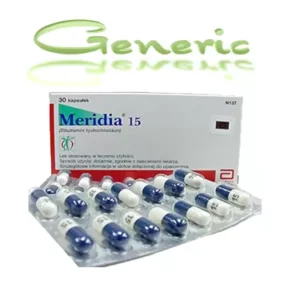Phentermine 15 mg: Weight loss medication
In a world where the pursuit of a healthy weight and a more active lifestyle is highly valued, many individuals struggle with weight management. Traditional methods such as diet and exercise may not always yield the desired results, which is where weight loss medications like Phentermine 15 mg come into play. In this comprehensive guide, we will explore the world of Phentermine 15 mg, understanding its uses, benefits, potential risks, and the importance of responsible and informed use.
Understanding Phentermine
Phentermine is a prescription medication commonly used to assist individuals in managing their weight, particularly in cases of obesity. It belongs to a class of drugs known as appetite suppressants. Unlike many over-the-counter supplements that claim to help with weight loss, Phentermine is a prescription medication that is recommended and closely monitored by healthcare providers.
How Phentermine Work?
Phentermine primarily works as an appetite suppressant by affecting neurotransmitters in the brain, specifically norepinephrine. By increasing the release of norepinephrine, Phentermine triggers a “fight or flight” response in the body, reducing hunger signals to the brain and leading to a sense of fullness with less food intake.
Benefits of Phentermine 15 mg
- Effective Weight Loss: One of the primary benefits of Phentermine is its ability to promote weight loss. It can be particularly helpful for individuals who have struggled to shed excess pounds through traditional means.
- Appetite Control: Phentermine is known for its appetite-suppressing effects, which can make it easier to adhere to a reduced-calorie diet and avoid overeating.
- Increased Energy: Some users of Phentermine report an increase in energy levels, which can be motivating for regular exercise and an overall active lifestyle.
- Improved Cardiovascular Health: Weight loss achieved with Phentermine can lead to improvements in cardiovascular health, as it may reduce the risk of conditions like high blood pressure and high cholesterol levels.
- Diabetes Management: For those with obesity-related type 2 diabetes, weight loss can improve blood sugar control, and Phentermine can play a role in this process.
- Psychological Well-being: Achieving weight loss goals can boost self-esteem and overall psychological well-being.
- Sustained Weight Loss: Phentermine has been shown to help individuals maintain weight loss over time, provided that they continue to make healthy lifestyle choices.
Side Effects of Phentermine
While Phentermine offers significant benefits, it is essential to be aware of its potential risks and side effects. It is not suitable for everyone, and its use should be closely monitored by a healthcare provider. Here are some potential risks and side effects associated with Phentermine:
- Cardiovascular Risks: Phentermine has been associated with an increased risk of cardiovascular events, such as heart palpitations, increased heart rate, and high blood pressure. Regular monitoring of blood pressure is necessary while taking this medication.
- Insomnia: The stimulant effects of Phentermine can lead to difficulty falling asleep or staying asleep.
- Nervousness and Anxiety: Some individuals may experience heightened feelings of anxiety, nervousness, or irritability while taking Phentermine.
- Dry Mouth: Dry mouth is a common side effect of Phentermine, which can be managed by staying hydrated.
- Digestive Issues: Phentermine may cause digestive problems, such as constipation or diarrhea.
- Dizziness and Lightheadedness: Feeling lightheaded or dizzy can be a side effect, especially when standing up quickly.
- Mood Changes: In some cases, Phentermine may lead to mood swings or depression.
- Addiction and Dependence: While Phentermine is not typically considered highly addictive, some individuals may develop psychological dependence on the medication.
- Tolerance: Over time, some individuals may develop tolerance to the appetite-suppressing effects of Phentermine, making it less effective.
Use of Phentermine
The use of Phentermine should be approached with caution and under the supervision of a healthcare provider. Here are guidelines for the responsible and informed use of Phentermine:
- Prescription and Medical Evaluation: Phentermine 15 mg is available by prescription only. It should be prescribed by a healthcare provider who has evaluated your health, medical history, and the appropriateness of the medication for your specific situation.
- Regular Monitoring: Regular check-ups, including monitoring of your weight, blood pressure, and overall health, are essential while taking Phentermine. This helps to detect and address potential issues promptly.
- Diet and Exercise: Phentermine is most effective when combined with a reduced-calorie diet and regular physical activity. It should not be seen as a standalone solution to weight loss.
- Adherence to Dosage: It is crucial to take Phentermine exactly as prescribed by your healthcare provider. Do not alter the dosage without consulting them.
- Inform Your Healthcare Provider: Keep your healthcare provider informed of any side effects or changes in your health while taking Phentermine.
- Cautious Use with Other Medications: Inform your healthcare provider of all other medications and supplements you are taking, as drug interactions can occur.
- Withdrawal: When discontinuing Phentermine, it should be done under the guidance of a healthcare provider to minimize potential withdrawal symptoms.
- Healthy Lifestyle Choices: Weight loss is most sustainable when accompanied by a commitment to long-term healthy eating and exercise habits.









